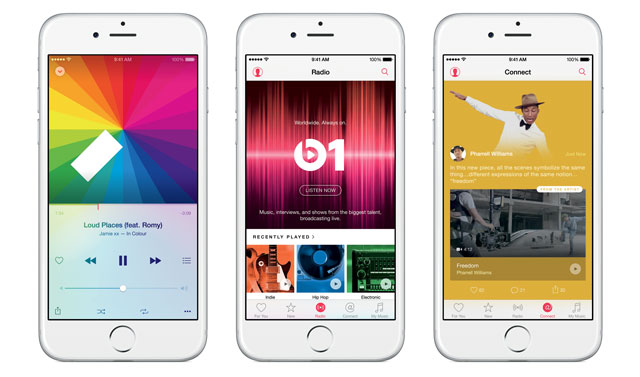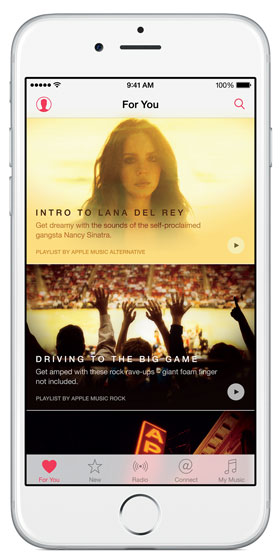
Apple has finally launched its own music streaming service at its Worldwide Developers’ Conference in San Francisco. The move should not come as a surprise. Last year, Apple bought the audio products company Beats by Dr Dre for US$3bn with the statement that music has a “special place” for the company. Apple is — after all — the company that pioneered portable digital music for the mass market and changed the way we listen through iTunes and the iPod.
While the focus of reporting around last year’s purchase was to question the value of the Beats headphone and speaker business, less attention was paid to the small US-based streaming service that came as part of the deal in the form of Beats Music. The question at the time and now is why Apple, a company with more than $170bn in cash did not go after the obvious candidate in the streaming music business: Spotify.
The reasoning for this decision becomes clearer when you contrast Apple’s business model with that of Spotify. Apple’s new product will be a subscription-only service, offering no free accounts or commercial advertising (although it will include a free 24-hour online radio service). Beats also has the advantage over Spotify in having a personality associated with that brand.
Apple, of any technology company, will appreciate and exploit the opportunities this brand affords it. Another potential candidate subscription-only music streaming service with a high-profile celebrity owner, Tidal, came along a little later.
Tidal’s subscription-only service, founded by Jay-Z, has arguably struggled with low uptake in an environment where a free service is the baseline expectation. However, a revamped iTunes Radio service that challenges Spotify’s market may also bring new life to the Tidal service, which claims to have 770 000 subscribers.
Other services such as Deezer work with the freemium business model, offering both advertising-supported and subscription accounts in a similar way to Spotify. But there is no intention within Deezer of changing in the short term.
There are currently at least 35 existing music streaming services but only 12 of these are recognised as global services and none is subscription-only. This categorisation itself reflects the complexity of rights management and the relationship of intellectual property laws with the traditional music publishing music model.
 Apple’s announcement does still leave a few questions unanswered, including the extent to which artists will see any benefits from this development. Without revisiting the existing relationships that artists have with music companies and broadcasters, the project will lack the financial innovation that is required in the business of streaming music.
Apple’s announcement does still leave a few questions unanswered, including the extent to which artists will see any benefits from this development. Without revisiting the existing relationships that artists have with music companies and broadcasters, the project will lack the financial innovation that is required in the business of streaming music.
The music industry has previously relied on consumers buying the media containing the music. Without the need for any physical media to distribute music, Apple is involving itself in the urgent need to rethink and future-proof the business model for global music distribution.
While it may not initially appear to be the case, the combination of a global audience of 800m iTunes accounts and the many millions of devices that can interact with iTunes all create a potentially instant user base of up to 100m subscribers — that far outstrips all the current subscription services. The launch of Apple’s service could again put it at the forefront of revolutionising the music business worldwide.
While the numbers all appear to signal another imminent success for Apple, this is nonetheless a major business innovation that will require the sustained support of the company. This support will need to be financial and also helps to explain why Apple saved its money by not chasing a Spotify valued at $8bn and went for the cheaper option.
Expect to soon regularly see advertising encouraging us to buy into iTunes Radio. iTunes Radio will also need to reinvent the relationship between music producers and performers in ways that echo the reinvention of television that Netflix has successfully championed.
Signals of Apple’s intention to go beyond a simple head-to-head competition with Spotify have been emerging over the last few months. Apple’s engagement of artists Drake and Pharrell and former BBC Radio 1 DJ Zane Lowe are all early signs of an effort to actively change the relationships between producers and consumers of music. For consumers willing to pay the suggested $10/month, Apple’s streaming service could help to yet again extend the experience and enjoyment of listening to music.![]()
- Gordon Fletcher works at the Centre for Digital Business at the University of Salford
- This article was originally published on The Conversation

